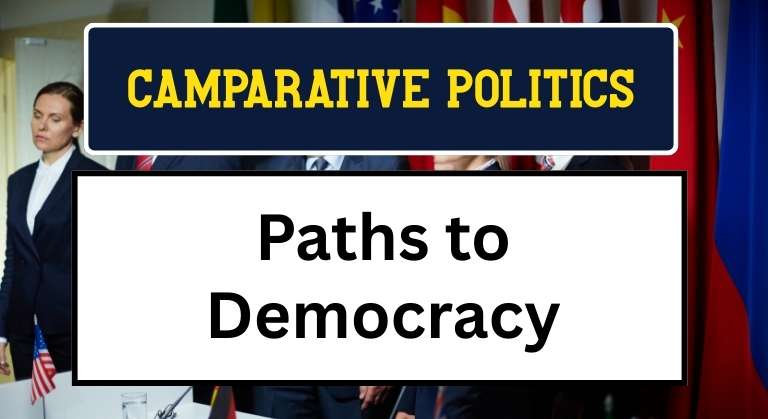What is the point of equality? | By:- Elizabeth Anderson
What is the point of equality?
By:- Elizabeth Anderson
Introduction
Egalitarian political movements have historically conceived of their goals. Egalitarian political movements oppose hierarchy. They emphasize the equal moral worth of individuals. This claim does not mean that everyone has the same qualities and talents. She goes.
Negatively – This claim reiterates differences in moral worth based on birth or social identity.
Negatively, it claims that all competent adults are equally moral agents and that everyone has the power to develop moral responsibility equally.
There is a negative as well as a positive aspects to these claims.
Negative– egalitarians seek to eliminate oppression, that form of social relations in which some people dominate, exploit, and incite violence against others.
Positive– egalitarians want a social system in which individuals stand in relationships of equality and want to live together in a democratic community as opposed to a hierarchy.
Equality in the space of freedom: A capabilities Approach
Amartya Sen has proposed a better way to understand freedom. He believes that it is to consider the conditions that constitute a person’s well-being. Can be physically healthy and literate.
They believe that abilities do not actually achieve activities but freedom of the individual is necessary to achieve any valuable work.
Reflection on the negative and positive aims of egalitarianism helps us to meet this requirement (in two ways):
negative– people are entitled to whatever capacities are necessary to avoid or enter into oppressive social relations.
Positive- He is entitled to the capabilities necessary to function as an equal citizen in a democratic state.
That is, the negative and positive aims of egalitarianism overlap to a great extent, but they are not the same, according to them, the potential for democratic equality guarantees citizens that individuals can perform their tasks and also acquires the necessary capabilities to perform the tasks.
to develop one’s talents
- access to education,
- freedom of occupational choice,
- contract and
- enter into cooperative agreements, etc.,
Being able to function as a citizen requires rights to political participation such as freedom of expression and suffrage or freedom of association Strengthens access to public spaces (streets, parks, public transport, postal service).
Three points should be made about the structure of egalitarian guarantees in place of freedom or capabilities:-
First– Democratic equality does not guarantee actual levels of functioning but effective access to those levels guarantees individuals the same level of functioning as they do below. are free to do.
For example, he may choose to join a religious group that discourages political involvement.
Second– democratic equality does not guarantee effective access to equal levels of work but effective access to a level of work sufficient to stand as an equal in society.
For example, Every citizen is entitled to an equal number of votes in an election.
Third– democratic equality guarantees effective access to a package of capabilities sufficient for equal standing throughout life.
Participate as an equal in a system of cooperative production:-
Democratic equality demands equality in ability or effective freedom to obtain the functions that are part of citizenship. For those who are able to work and are regulated to participate in the productive system.
Rakowski argues that workers choose particularly hazardous occupations such as farming, fishing, mining, forestry, firefighting, and polishing. If they get injured in the course of their work, they have no medicine to ask for treatment, rehabilitation, or compensation.
The case of caretakers and children dependent on non-wage earnings may be outside the purview of society as a system of cooperation but it is to confuse the economy with the market sector Caretakers dependent on non-wage earning in at least 3 ways Contribute to the production through-
First– First of all those domestic producers engage in cleaning, cooking, and so forth.
Second, they raise the future workers of the economy and help rehabilitate the sick and injured so they can return to work.
Third– All dependents are treated as human beings to discharge the obligation and the obligations that all family members have towards their dependent kin absolve others from such responsibility and thus make them marketable. free to participate in the economy.
Therefore, the concept of society as a system of cooperation provides a safety net through which even a person who is degenerate or careless is provided security in society and no one will be assigned a job with insufficient benefits in the production system. Given the necessity and risk of people being deprived of their social conditions of liberty because they have met this requirement, that is, democratic equality also favors qualified entitlement to work on the part of willing, able-bodied adults.
Democratic equality, Personal Responsibility, and Paternalism
Democratic equality guarantees effective access to social conditions for all citizens regardless of how they conduct their lives. It does not deprive negligent or soul-destroying citizens of essential medical care.
Democratic equality does not absolve individuals of all harm caused by their unfair treatment; it only guarantees the freedom and set of capabilities necessary to act as equal citizens and avoid oppression.
Democratic equality has two strategies to promote individual responsibility.
First, it provides equality in space of capabilities, called opportunities or freedoms.
Second, most of the freedoms guaranteed by democratic equality come and are required to be implemented by responsible agencies. We do.
Democratic equality guarantees the social foundations of education and self-esteem necessary to know and consider an alternative. It also avoids the powerful incentives to deny personal responsibility that is built into the similitude of fate.
As per the equality of fate, there are two options-
The first one is to allow the person to decline health insurance and give up when he/she needs emergency care. second is to tell him/her “You are too old to drive yourself”. are stupid so we will force you to buy health insurance because we know better than you what is for your own good”
Democratic equality makes no judgment on whether it is for any individual to buy health insurance or would be prudent or improper.
The Disabled, the ugly, and other victims of Bad luck
According to democratic equality, the description of nature’s good or bad luck is neither just nor unjust Distribution of wealth is not a matter of injustice but people cannot make it an opportunity to dominate, beat or otherwise oppress people with disabilities, hideous appearance or low intelligence to exclude them from civil society and give them equal rights in society In a liberal democratic state all citizens are entitled to their social conditions of liberty and equal standing in civil society whether handicapped intellectually or physically what other victims of an evil past
fortune is what society views about what should be considered as handicapped or ugly. democratic equality does not pass judgment on the basis of the basic endowment of people and hence to say stupid or unfit people in the society Or it is not special to express concern about them.
Democratic equality emphasizes that all actors in society can act as equals and that people have the sufficient advantage to perform in each role i.e. society does not treat any individual equally it treats everyone equally. Treats as equal and also arranges compensation to provide equality to some people.
Democratic equality and the obligations of citizens
ensure that people’s rights do not depend on arbitrary variations in personal interests and that people do not claim rights without accepting corresponding obligations to others.
Democratic equality applies the judgment of justice to the human system and not to the natural system. It provides a way of conceiving and harnessing human diversity here so as to benefit everyone and determine the liability of people accordingly.
Democratic equality conceives of equality as a relationship between people and not merely as a pattern in the distribution of departmental goods.
Democratic equality thus provides a better way to understand the explicit demands of justice which demand it to act on principles that express respect for all.





